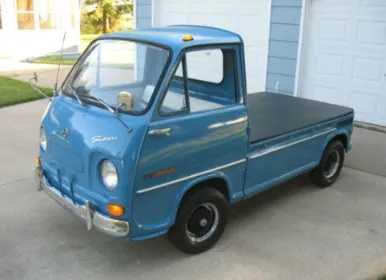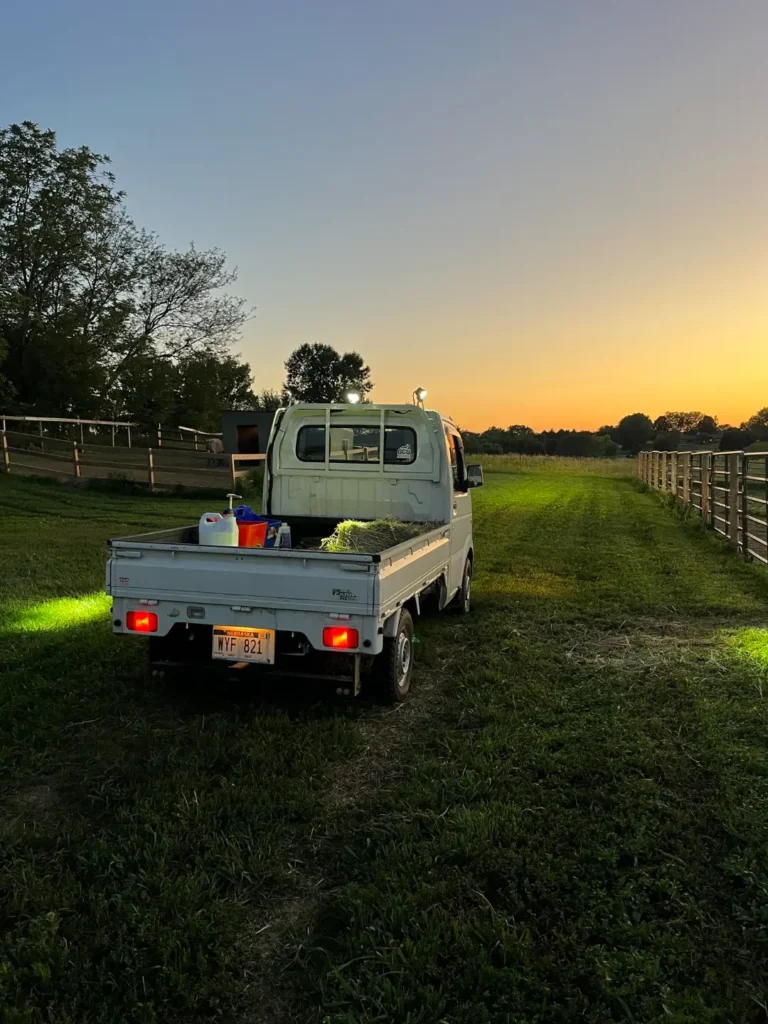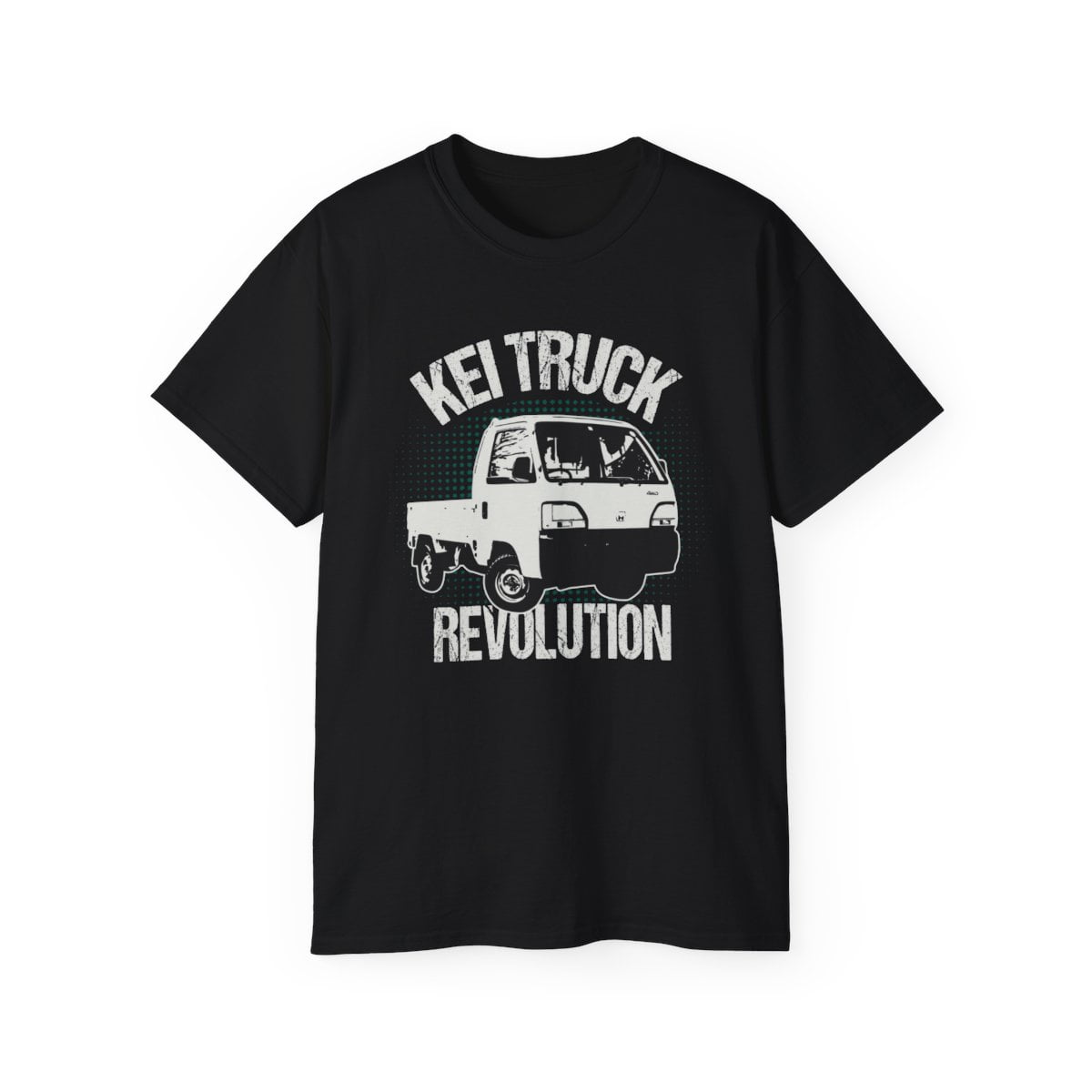This guide’s goal is to give you an unbiased look at owning a Kei truck, revealing its benefits and limitations. By considering these factors, you’ll gain a complete understanding and the knowledge you need to decide if a Kei truck is right for you. You’ll get to learn about their operational efficiencies, the cost savings they provide, and their adaptability to various tasks. But, it’s also important to think about their potential downsides, like limited speed and hauling capacity. So, let’s navigate through this information-packed exploration of the pros and cons of owning a Kei truck. After all, it’s all about finding the right vehicle for your needs.
Advantages of owning a Kei Truck
Efficiency and Fuel Usage
The economical fuel consumption of Kei trucks is a significant advantage. This feature not only reduces your expenses at the gas station but also contributes to their overall cost-effectiveness.
Size and Maneuverability
Kei trucks’ compactness is a standout feature, making them highly maneuverable. Their tight turning radius and small footprint are particularly beneficial in urban areas where space is often limited. Furthermore, their compact size simplifies parking, even in crowded areas.
Versatility and Adaptability
Kei trucks’ versatility extends beyond size and fuel efficiency. They can be adapted for a myriad of tasks, from agricultural duties to urban deliveries. Their compact size and customizable features make them suitable for recreational uses and off-road adventures. This adaptability makes them a valuable asset in a variety of settings.
Lower Purchase and Maintenance Cost
Kei trucks’ affordability extends beyond the initial purchase price. Their fuel efficiency can result in significant long-term cost savings. Plus, their smaller engines produce fewer emissions, making them a more environmentally friendly option for transportation.
Resell Value and Market
When deliberating over the potential purchase of a Kei truck, it’s essential to recognize the remarkable value retention and market appeal they offer. These vehicles tend to hold their value exceptionally well, primarily due to their exceptional uniqueness and the inherent difficulty of importing them from Japan. Their distinctiveness, combined with their vintage status and affordability, contribute to a strong demand in the market. The scarcity of Kei trucks, coupled with their enduring charm, can potentially make them an astute investment choice, setting them apart from more conventional vehicles.

Limitations of Kei Trucks
Limited Speed
While these vehicles are well-suited for city driving and off-road use, their smaller engines may not allow them to keep pace with larger vehicles on highways or in high-speed situations.
Smaller Interior Space
The compact nature of Kei trucks, while advantageous for maneuverability and parking, does mean they offer less room for passengers and cargo compared to larger vehicles. This could be a disadvantage if you have a large family or if your business necessitates substantial hauling capabilities.
Limited Hauling Capacity
Their lightweight construction and small size may not be ideal for heavy-duty tasks that involve transporting large or heavy items. Nonetheless, they are well-equipped for lighter tasks such as urban deliveries, farming and agricultural tasks, and off-road adventures.
Parts Availability
Lastly, the availability of parts and service for these vehicles can be a challenge, especially outside of Japan. Before purchasing, ensure there are reliable service centers or mechanics in your area who have experience working with these vehicles. Maintenance and upkeep are key to ensuring the optimal performance and longevity of your vehicle.

Comparing Kei Trucks with Regular Trucks
When evaluating Kei trucks against their larger counterparts, several aspects come into play. These encompass structural variances, weight-carrying abilities, comfort and convenience attributes, and safety provisions.
Design Differences – Exterior and Interior
Kei trucks are recognized for their compactness and lightweight structure. This contributes to their maneuverability, particularly in confined spaces. Their smaller stature also aids in their fuel economy, as they can cover more distance per unit of fuel.
Internally, Kei trucks might offer less room compared to larger vehicles, impacting their cargo and passenger capacities. However, they offer the flexibility of customization to cater to specific requirements, such as incorporating a flatbed for agricultural purposes or equipping a refrigerated unit for city deliveries.
Load-bearing Capabilities
Despite their smaller stature, Kei trucks are quite flexible and adaptable for a variety of tasks. They can manage a spectrum of weight-carrying tasks, although they might not be the best fit for larger hauling requirements due to their restricted cargo capacity. Nonetheless, for activities like farming, city deliveries, and off-road adventures, Kei trucks can be a practical and efficient choice.
Comfort and Convenience Features
One of the primary benefits of owning a Kei truck is the convenience it provides. Their compactness facilitates easy parking in crowded areas, where larger vehicles might find it challenging to locate suitable spaces. They’re also generally more economical compared to larger vehicle types, with lower acquisition prices and upkeep costs. However, procuring parts for Kei trucks can be a hurdle, particularly outside of Japan, which may increase their maintenance expenses.
Safety Features
Safety is a crucial factor when comparing Kei trucks with regular trucks. Due to their smaller stature and lighter weight, Kei trucks might have less structural robustness and can be more susceptible in accidents. It’s essential to drive with caution and be cognizant of these limitations. Perception and societal factors can also influence how safe you feel in a Kei truck, as they might be perceived differently in different cultures or societies.
Crucial Considerations for Kei Truck Owners
If you’re contemplating becoming a Kei truck owner, there are several factors you’ll need to weigh. These nimble, adaptable vehicles offer a plethora of advantages, but they also present their own unique set of considerations.
Assessing Need with Kei Truck Specs
While the benefits of Kei trucks are numerous, it’s crucial to evaluate your specific needs against the capabilities of these vehicles. Their compactness and maneuverability are advantageous in certain scenarios, but their limited cargo and passenger space may not align with larger-scale transportation requirements. Similarly, their performance in high-speed situations may not meet the expectations of some users.
Availability of Kei Trucks’ Spare Parts
One crucial aspect to ponder is the accessibility of spare parts. While these vehicles are ubiquitous in Japan, in other regions, procuring parts can be a hurdle due to their unique specifications and limited availability. This could potentially escalate repair costs and extend wait times for repairs.
Insurance Coverage and Cost
Insurance is another element you’ll need to evaluate. While these vehicles generally have lower acquisition prices, it’s vital to investigate and compare insurance premiums and coverage options. Imported vehicles might require specialized insurance.
Wrapping Up: Kei Trucks, An Asset Worth Considering
Kei trucks, with their fuel efficiency, affordability, versatility, and adaptability, indeed make a compelling case as an asset you should consider. Their ease of parking is an added bonus, enhancing their appeal.
Sure, there’re challenges attached, like safety concerns, limited space, performance constraints, and parts availability issues – but a well-informed, case-by-case evaluation is key.
Keeping your specific needs, and regional regulations in mind, a Kei truck could be a beneficial addition to your fleet – whether it’s for farming, urban deliveries, or recreational use.
This compact, agile, and efficient vehicle could be your answer to various demands, particularly in space-challenged, crowded urban settings. Embrace the uniqueness of Kei trucks, and let them add value to your everyday tasks.











